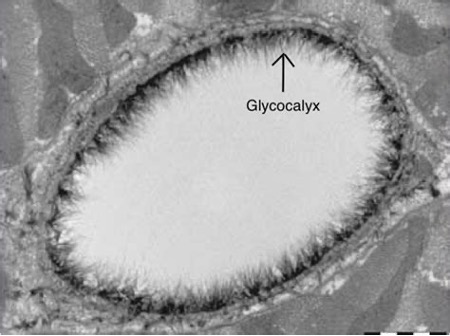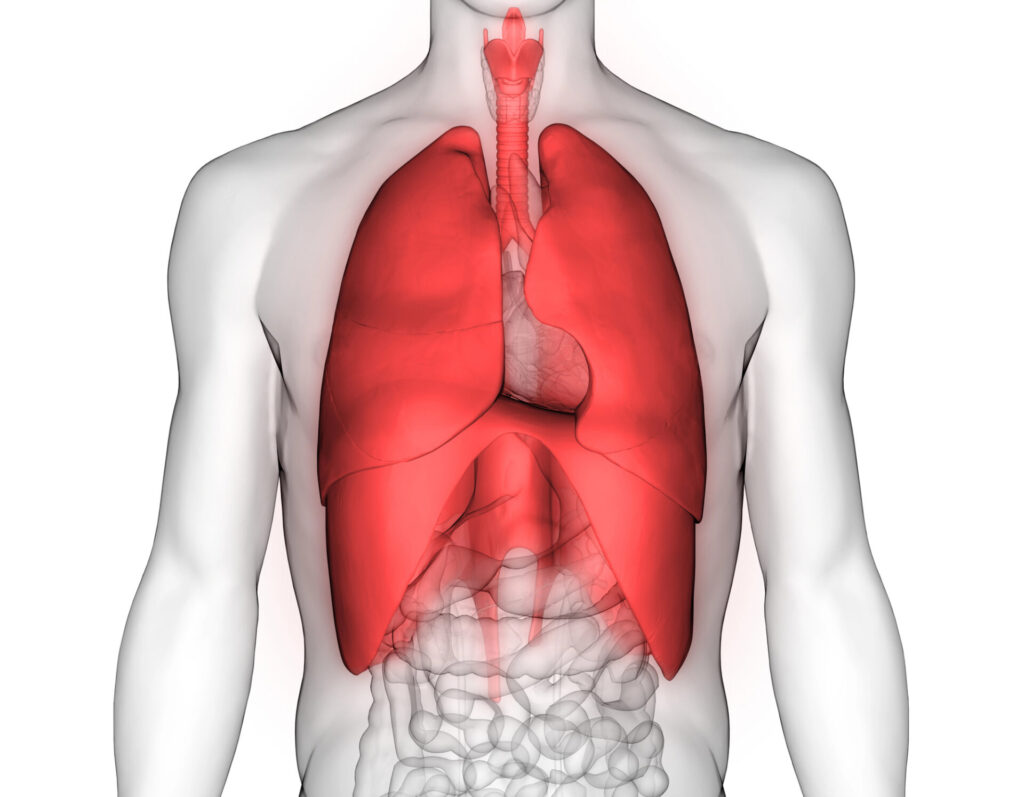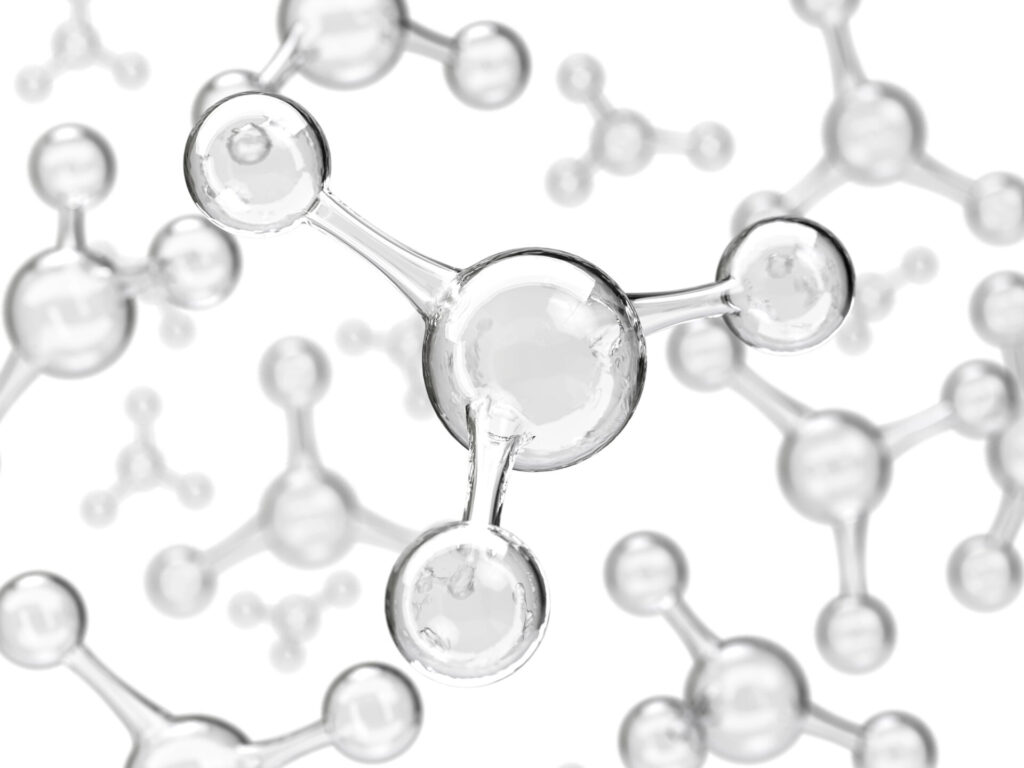“Endothelial glycocalyx (eGCx) deterioration is considered an early step in the onset of basically all chronic vascular complications.”
In this article, I want to share with you information regarding the glycocalyx (eGCx).
This is an aspect of CV health/disease that I suspect not a lot of practitioners have knowledge about and are not taking into consideration when dealing with CV issues with their patients directly however they may be addressing with their patients indirectly with lifestyle guidance, supplementation recommendations etc.
I will refer to the references at the end of this article to 4 articles/papers from which I am sharing information contained in this article. These are good sources if you wish to find out more information on this topic.
What Is The Glycocalyx?
The endothelial glycocalyx (eGC) is a dynamic hair-like layer expressed on the apical surface of endothelial cells throughout the vascular system. This layer serves as an endothelial cell gatekeeper by controlling the permeability and adhesion properties of endothelial cells, as well as by controlling vascular resistance through the mediation of vasodilation. Pathogenic destruction of the eGC could be linked to impaired vascular function, as well as several acute and chronic cardiovascular conditions.
The breakdown of the eGCx allows cholesterol to enter the endothelium and start the plaquing process. Only through a compromised glycocalyx can atherosclerosis occur! Damage to the glycocalyx results in increased vascular permeability, which can be thought of in simple terms as “leaky vessels.” The increased vascular permeability also causes vascular edema in the local environment of eGCx damage.4
With the anticoagulant activity of the eGCx impaired, an overactive coagulation process occurs.2 The synthesis of nitric oxide and superoxide dismutase is also impaired, which increases oxidative stress and vasoconstriction.4
Furthermore, damage to the eGCx releases fragments of glycoproteins and proteoglycans. This activates immune cell migration to the site because the fragments are considered “foreign,” leading to localized inflammation and the expression of ICAM and VCAM-1.2
Diseases That Contribute to Glycocalyx Damage
Many diseases, processes and variables contribute to eGCx damage. The list below is probably incomplete as further research will likely reveal more variables. Here are the currently known causes of eGCx damage:
- Systemic and local inflammation
- Diabetes mellitus
- Chronic and acute kidney disease
- Stroke
- Cancer
- Sepsis
- Ischemia-reperfusion
- Atherosclerosis
- High blood pressure
- Viral infections4
- Traumatic brain injury2
- Trauma
- Excess sodium from aldosterone5
- Hypovolemia6
Measuring Glycocalyx Damage
Measuring damage to the eGCx is challenging as there currently is no commercially available test. At this time, the method that provides the closest assessment of eGCx function is the Glycocheck, a sublingual device that measures microcirculation. Syndecan-1 is the most prevalent and researched component of the eGCx for assessing damage, although it is not yet available commercially.5
Glycocalyx Regeneration
Preserving the health of the eGCx is pivotal to cardiovascular health because worsening endothelial cell barrier dysfunction can lead to plaque rupture and thrombosis.2 The exact science for regenerating the glycocalyx does not exist—how can we validate treatments that cannot be assessed? However, there can be extrapolations based on the components of the glycocalyx.
Supplements for Glycocalyx Support
Glucosamine and chondroitin supplementation was found to lower cardiovascular death risk in multiple studies.7–9 I was personally astonished when I learned that a “joint supplement” decreased cardiovascular death risk. As it turns out, glucosamine is a precursor for the proteoglycans found in the eGCx; this is the proposed reason why glucosamine decreases cardiovascular mortality.
Hyaluronic acid is another promising supplement for eGCx protection and regeneration. While hyaluronan is a small component of the eGCx, it serves many vital functions.
Supplemental hyaluronic acid has been shown to restore the eGCx in rodents.10 However, hyaluronic acid alone is likely insufficient as exogenous hyaluronan is unable to incorporate into the eGCx unless another proteoglycan is present.11
Seaweed is also an option for eGCx regeneration.
Fucoidan, a component of brown seaweed, is a highly sulfated, fucose-rich polymer.12 Sulfated heparan and chondroitin sulfate comprise the majority of the eGCx.13 Fucoidan has been shown to offer many health benefits, ranging from immune modulation to gut and cardiovascular health.
The polyphenol phlorotannin, another component of brown seaweed, and fucoidan are anti-inflammatory and antioxidants. Brown seaweed like Fucus vesiculosus can help to regenerate and protect the eGCx while supporting whole body health.12
There are also a couple of patented nutraceutical formulations which target the glycocalyx:
- Endocalyx
- Arterosil
Certain pharmaceuticals have been proposed to be of benefit in the case of glycocalyx damage, such as:
- Rosuvastatin
- Metformin
- Hydrocortisone
- Albumin
Fresh Frozen Plasma and some others.
Also proposed are a combination of Exogenous hyaluronic acid (HA) and exogenous chondroitin sulfate (CS), Beta-Hydroxybutyrate and Melatonin (BHB/M), Adenosine, Lidocaine, and Magnesium (ALM)
The Bottom Line
Consider the glycocalyx as a fundamental component of the body during the treatment of any cardiovascular condition or other condition that has compromised microvascular or macrovascular circulation. This long-forgotten, vital component of all blood vessels could be the missing key to unlock true vascular wellness.
Keeping this concept of the glycalyx in mind may be of benefit with regards to interactions with patients and some of the proposed solutions may also be worthy of consideration in developing CV treatment protocols.
References
Nutrients. 2023 Jun; 15(11): 2573.
Published online 2023 May 31.
doi: 10.3390/nu15112573
PMCID: PMC10255458
PMID: 37299535
Endothelial Glycocalyx Preservation—
Impact of Nutrition and Lifestyle
Paula Franceković and Lasse Gliemann*
The Glycocalyx: Gatekeeper to Good Health?
By Thomas Wrona — Medically Reviewed and Certified by Dr. Robert Kiltz
Industrial & Engineering Chemistry Research
Review November 24, 2021
Regeneration and Assessment of the Endothelial Glycocalyx To Address Cardiovascular Disease
- Selina Banerjee John G. Mwangi Theodora K. Stanley Ronodeep Mitra Eno E. Ebong*
Endothelial Glycocalyx Damage: New Considerations in Cardiovascular Disease
Megan Borreson, ND | March 8, 2023 | Cardiometabolic Health





